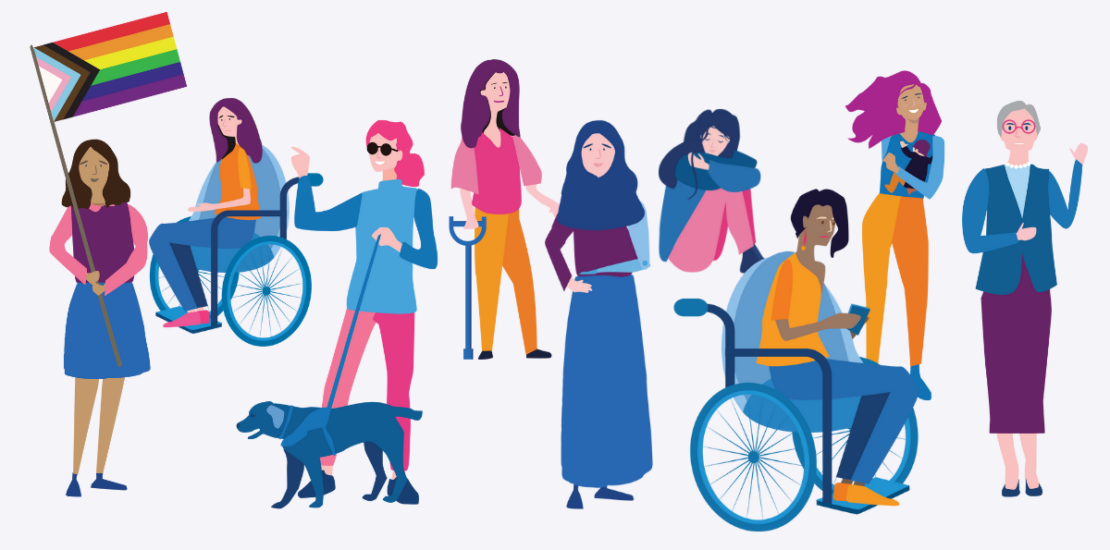- December 2, 2022
- Posted by: Ally Venianakis
- Categories: Mental health, Resilience and wellbeing

By Alexa Locke
Alexa is a a Rehab Counsellor who sustained an incomplete spinal cord injury in December 2015.
International Day of People with Disability (IDPwD) is held on 3 December each year. IDPwD is a United Nations (UN) observed day celebrated internationally. It aims to increase public awareness, understanding and acceptance of people with disability and celebrate their achievements and contributions.
On IDPwD Resilia celebrate our charity partnership with In Sight of Dreams, who aim to enable people who live with a disability to prepare for life and achieve their dreams. Our team at Resilia support In Sight of Dreams through the “Back on Track” program, a series of resilience coaching sessions delivered to adults with acquired or progressive disabilities, alongside mentoring provided by another person with disability.
Immediately following the diagnosis of a disability, people often find themselves surrounded by medical professionals, therapists, community supports and family and friends. People can experience an overwhelming influx of formal and informal supports, especially when the disability occurred suddenly or traumatically, such as in the case of traumatic brain injury or spinal cord injury. Over time though, treatment and formal supports tend to settle down and people move into a place of learning to live with the changes to their physical, cognitive and/or emotional functioning. There is often a period of grief experienced by the person with disability while they come to terms with the changes to their abilities, and to the subsequent changes to their roles within family, work and their wider social circles.
Disability is the great equaliser, it can happen to anyone, at any time. It is one of the few minority groups that any one of us could suddenly become a part of. Disability doesn’t need to equate to a longer term sense of loss though, and resilience coaching can play a part in helping a person with disability to reach a place of acceptance, pride, and even celebration of their disabled identity.
Clients ask our consultants: “But does Resilience Coaching mean that I need to just get on with things?” Well no, not unless that’s what they would like to achieve through a resilience coaching program. We work with clients on an individual level to set goals and priorities for resilience coaching.
When Resilia Rehab Counsellors and Psychologists work with clients in resilience coaching, we acknowledge the importance of holding space for the sense of grief and loss that often accompanies an acquired disability. We encourage clients to explore these feelings and help them to develop strategies to manage any negative impacts these thoughts may have in the future, because it’s highly likely that those thoughts will come up again. I’m not going to say I’m joyful after having yet another fall, however it no longer leads to weeks of low mood and self pity, it’s just part of living in my body. I didn’t reach this point of acceptance on my own though, I had the support of a wonderful psychologist.
“What happened to you?”
Being asked to relive what is often the most traumatic moment in a person’s life every time they step out the door is an enormous test of resilience (trust me, this happens, for me it’s mostly when I’m minding my own business waiting for a train on my way to work, or watching my daughter play on the swings at a park). Through resilience coaching, we work with individuals to develop their own unique way to describe themselves and their changed identity, to develop strategies to negotiate access and to respond to intrusive or upsetting questions and to reach a point of acceptance of their new normal.
Through participation in resilience coaching, we have seen clients become disability advocates and mentors, return to work and seek promotions and enrol in university studies. We have also seen clients decide through coaching to focus on their families or participate in volunteer work. Our clients leave their coaching programs feeling empowered to advocate for themselves.
Seven years into living with a spinal cord injury, I work in a challenging and rewarding position with a truly inclusive organisation that encourages me to reach my personal and professional goals. I’m proud of everything I’ve achieved and I’m grateful that I can provide resilience coaching to other members of the disability community. And when someone asks, “what happened to you?”, well I think my daughter says it best: “It’s none of your business, but Mummy’s silly leg is part of what makes her special!”.
